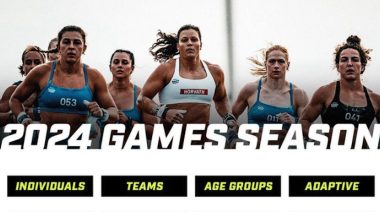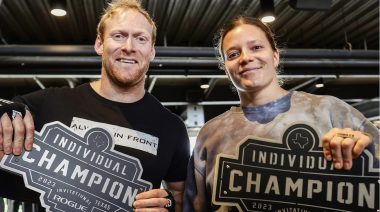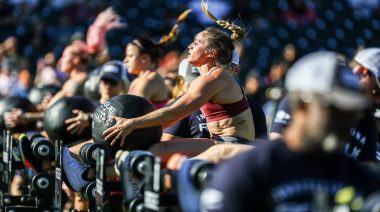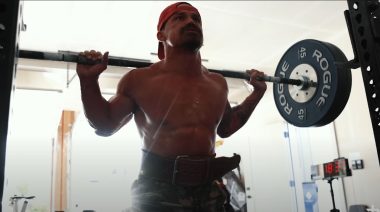I’ve had the privilege of delivering seminars all over the world, at gyms and boxes, to passionate and fascinating people committed to self-improvement. I give what I know – the good, the bad, the ugly, the mistakes, the lessons, and the victories. I appreciate no-frills honesty in others, and that is what I try to give of myself. Keep it simple, keep it real, and keep it honest. I don’t do scientific, unless you call the school of life a science – from that school I’ve got a badass PhD.
If you could earn a degree for life experience, I would be Dr. Allen.
At my seminars, I usually hear someone say something like, “It’s easy for you because you don’t have to work,” or, “I’d be good too if I didn’t have to work.”
Such comments always make me smile for three reasons:
- Because I understand that from the outside an athlete’s life can appear easy and glamorous – train all day and nothing to worry about.
- Because of the particularly narrow view people seem to have about “work” – nine to five at a desk or an office.
- Because what they’re imagining couldn’t be further from the case for me.
I have some incredible sponsors, who support me financially, and I earn some annual prize money, but not a lot. When I figure my hourly earnings for the time I spend training and competing – not including competition travel, which can be expensive – I would be lucky to have earned $8.00 per hour over the past year.
And if I then calculate in the time and costs associated with my recovery activities each week, I’d be down to maybe $3.00-4.00 per hour.
The Costs of Competing
So what do a CrossFit Games-level athlete’s weekly expenses look like? Here’s an averaged out estimate:
Protein powder – $10
BCAAs, creatine, beta-alanine, taurine, glutamine, L-carnitine – $15
Vitamins (B, C, magnesium, multivitamin, zinc, fish oil, etc.) – $20
Nutritionist/naturopath – $20
Coaching – $50 (maybe!)
Superfoods and powders (maqui, acai, cacao, coconut kefir, sauerkraut, etc.) – $20
Grass-fed meats – $50
Organic free-range eggs – $20
Clothing and training equipment – $40
Paleo-type bars – $20
Massage – $90
Physiotherapy – $50
Floats/cryotherapy – $60
Travel to and accommodations at competitions – $120
TOTAL: $585
“When I figure my hourly earnings for the time I spend training and competing – not including competition travel, which can be expensive – I would be lucky to have earned $8.00 per hour over the past year.”
These are just the basic costs specific to an athlete. No rent or mortgage, automobile fuel, or general groceries included. No holidays, entertainment, utilities, and general day-to-day costs of living included. And I’ve calculated based on lower-end costs for most items. The higher ranked and accomplished an athlete becomes, the more of these items he or she can look to sponsors to cover, but in the beginning and for quite some years, this is a distant dream and fantasy.
Athletes and Artists
Training is my first choice of “work.” I have given up a lot of other earning opportunities to allow myself the time to train for the CrossFit Games. Lost earnings is a huge cost to an athlete, particularly an older athlete.
I imagine being an athlete to be a lot like being an artist. Artists have to buy paints, brushes, and canvases. They work long, unforgiving, and unseen hours alone, often with nothing tangible to show for their efforts. Do they have a “job”?

The passion and the struggle in the lives of many professional athletes is similar to that of an artist.
I ran a personal training, life coaching, and corporate team building business for many years before CrossFit, and before that I worked in marketing. My income was very healthy. But as my priorities changed, so did the way I chose to distribute my time and the way I actively chose to earn my income and manage my finances.
In early 2012, I moved from a luxurious rental property in a fancy suburb into a cheap, shared rental house just minutes from my CrossFit gym. There are so many things I chose to do to reduce my financial demands so I could dedicate myself to my training. I started living like a student again, at age 42. I chose this way of living to allow me to pursue my dreams.
Over the past few years, I’ve written online books and developed my Fit As F*ck 28-Day Online Challenge, which is launching its ninth incarnation this month. I developed my Fit As F*ck Women’s Only Online Coaching program about twelve months ago. It is extraordinarily rewarding, but quite time consuming. In 2013, I did a five-week speaking tour up the east coast of Australia. I also write for various magazines, work with individual athletes worldwide (on both health and performance coaching), and I deliver seminars on a semi-regular basis. I do this work while training around four to six hours a day on six or seven days of the week.
“I choose to spend my time, my money, and my energy in a manner that aligns with my values and priorities. It makes decisions very simple.”
I do my work wherever I am – from my iPhone, between sets, warming up, waiting in line at the supermarket, at the dog park. All of my books and programs have been written this way – in the spaces between the things we recognize as life.
I don’t get sick pay or holiday pay. I virtually never take a sick day and I don’t remember the last time I had a holiday. There is no security in being an athlete, only the daily grind that most people never witness. The pay rate is criminal, the life is nowhere near glamorous, and it’s filled with frustration, pain, fear, and no promise of success, recognition, or reward. Injury can destroy years of work and sacrifice in an instant. It’s no easy life. It’s certainly not for everyone.
Balancing the Necessary Sacrifices
I don’t have children and I’ve never been married, not by design but simply by the way things have unfolded in my life. I know many athletes who have marriages, children, and jobs. It’s not a matter of easier or harder with or without these things. It’s simply a matter of the choices you make and the priorities you set.
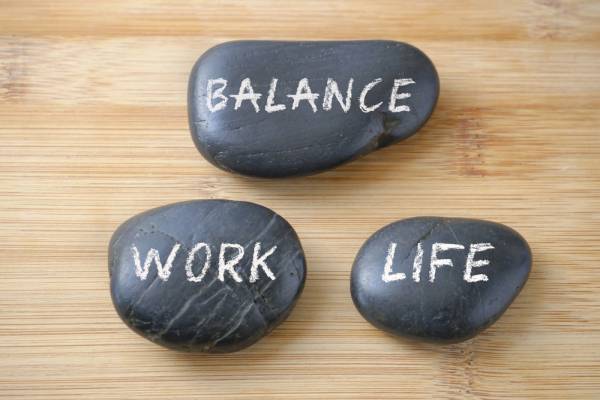
Balancing training as a professional athlete with other aspects of life is all about priorities and preference.
I choose to spend my time, my money, and my energy in a manner that aligns with my values and priorities. It makes decisions very simple.
- Do I want to buy that expensive material thing? No, I don’t need it, it doesn’t align with my values and priorities, and I sure as hell can’t afford it.
- Do I want to have a late night and go to that expensive dinner party? No, same as above.
- Do I need an expensive car/house? Nope.
- Do I want to purchase high-quality food? Hell, yes.
- Do I want pizza? No way.
- Do I want to stay up to watch TV or go to bed early? Go to bed early, f’shizzle.
- Do I need a fancy new handbag, dress, or pair of shoes? No f’n way.
- Do I want a new book? Yes, but I’ll buy it from the charity shop.
- Do I want to eat out regularly? Yes, but I don’t. I save money and protect my health by preparing all my food and having it with me every day.
The list goes on and on. Being an athlete means daily discipline and sacrifice. It can actually be a whole lot of fun living your discipline, living in pursuit of your passion, living frugally, striving for your goals and values, and saying “no” without guilt to protect your priorities and all the years of hard work. That is how this athlete tries to live her life and honor her path.
What are you doing to honor your path?
Check out these related articles:
- 4 Lessons Everyday Athletes Can Learn From Professional Athletes
- Cheryl Brost – On Becoming a Professional Athlete
- Overtraining: the Difference Between Pros and Average Joes
- What’s New On Breaking Muscle Today
Photos courtesy of Shutterstock.

